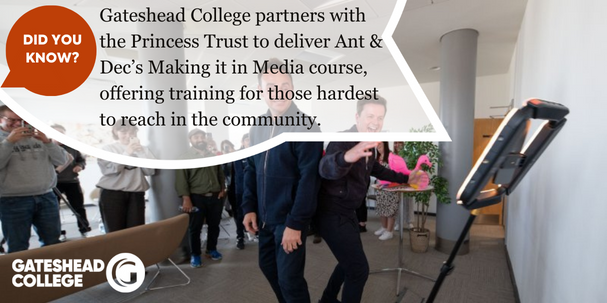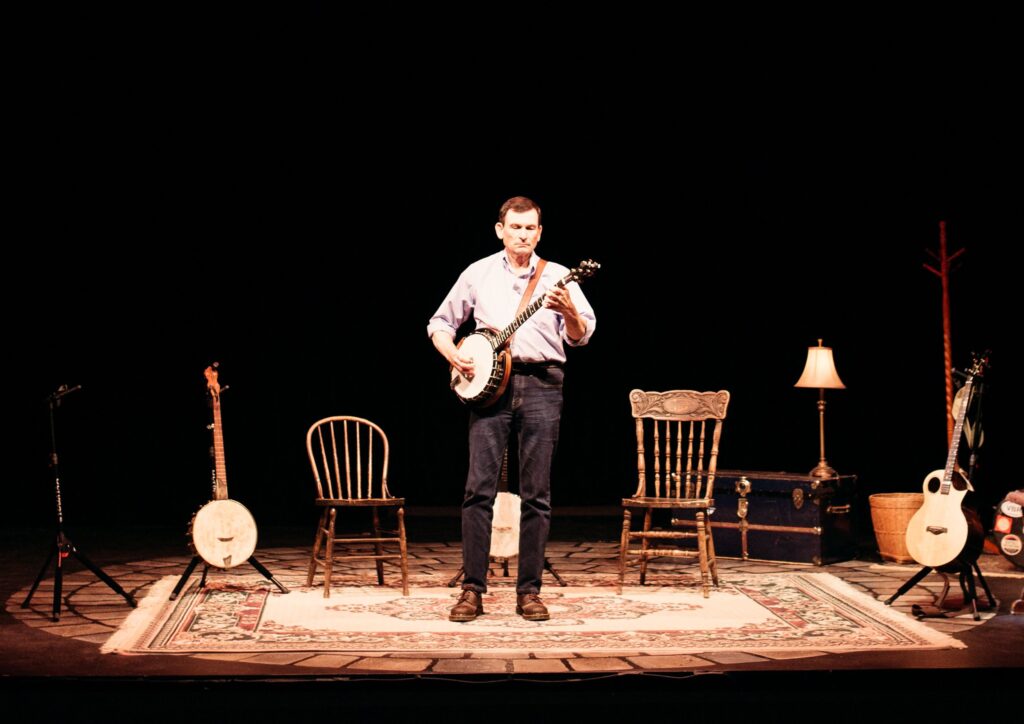
Keith Alessi’s on the road again, speaking to me on a WhatsApp call as he embarks on a four-hour drive to see a friend in Philadelphia who’s “not doing too well”.
The drive’s nothing, he assures me. “I routinely drive 30 or 40 hours across country in the States.
“When I come to the UK people think I’m mad when I tell them I’m driving from Edinburgh to Wales.”
The friend in Philadelphia will almost certainly feel better for Keith’s visit.
As one of the world’s more unlikely entertainers, it has been proved many times that Keith’s company peps people up.
By his own admission, he is a pretty average banjo player – wouldn’t cut it as a professional – but he has a show that after a handful of trial runs in Canada is now nudging 400 performances around the world.
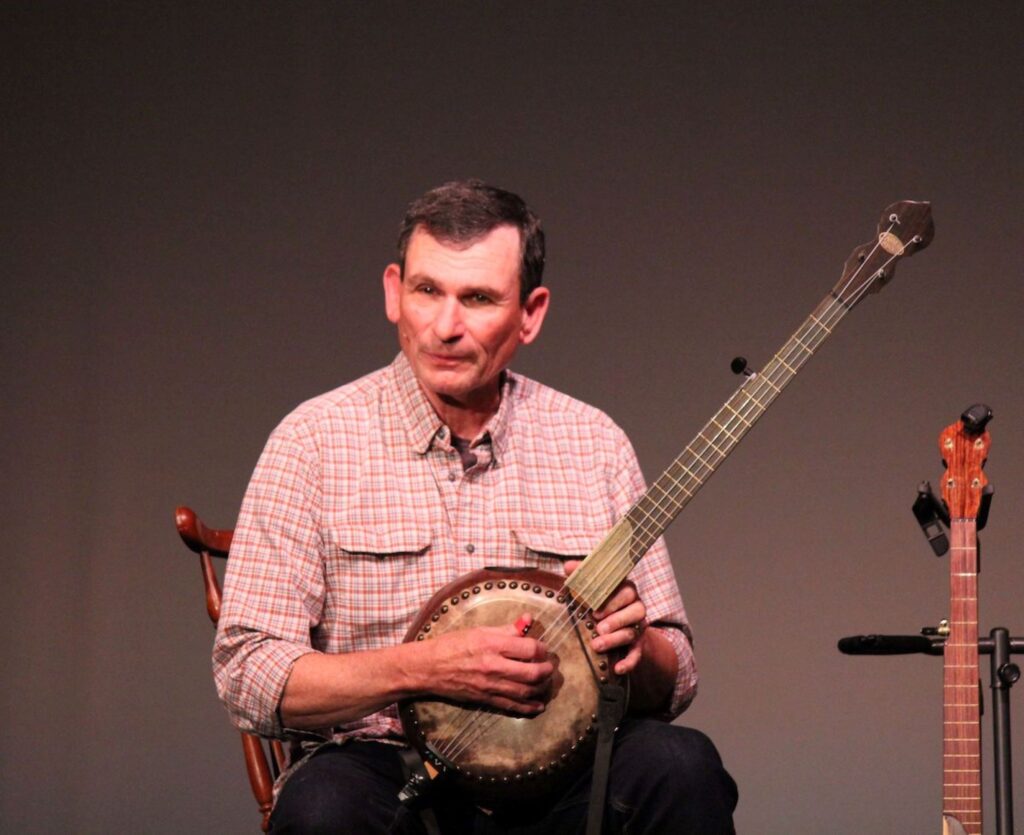
It is called Tomatoes Tried to Kill Me But Banjos Saved My Life, and if it’s a title that would win no prizes for brevity, it certainly grabs attention.
“The thing kind of picked up momentum,” says Keith at the wheel.
He has an understated sort of delivery, in keeping somehow with his LinkedIn profile which describes the man he used to be.
“Experienced turnaround executive with successful record of value creation as senior executive in both private and public companies,” it states. And that’s just for starters.
An accountant by training, he went on to succeed in business and academia. He ran a coal company based in Edmonton, Canada, for eight and a half years and also has ‘professor of law’ on his CV.
He was a business whizz with a talent for turning things round and making money. Not on the face of it, perhaps, someone people would turn out to see in a village hall on a rainy evening but a likely big draw at a conference of hedge fund managers.
- Read more: Cathedral gig a bridge between people
- Read more: My life through a lens – Mark Pinder
But then came a dramatic double whammy of a change in Keith’s life that was partly planned and partly out of left field.
“I had a world class collection of banjos. I’d been a collector as a kid – stamps, coins, that kind of thing – so I suppose I was always going to get round to it.
“Every now and again I’d get one out of the closet but I’d never really got any use out of them. I wasn’t any good at playing them. Don’t know if I’m any good now.”
But the way he tells it, at the age of 61 he decided to call time on his corporate existence and learn to play the banjos in his closet.
Incidentally, the near inevitability of banjo collecting, while it might sound a little whimsical in the North East, isn’t quite so unlikely in Keith’s neck of the woods, which is to say Canada and Virginia (he has dual US/Canadian citizenship).
“It’s a very American instrument,” he says, going on to explain that while covetable as a physical artefact, it was always the sound that drew him in. That and the very idea of the banjo.
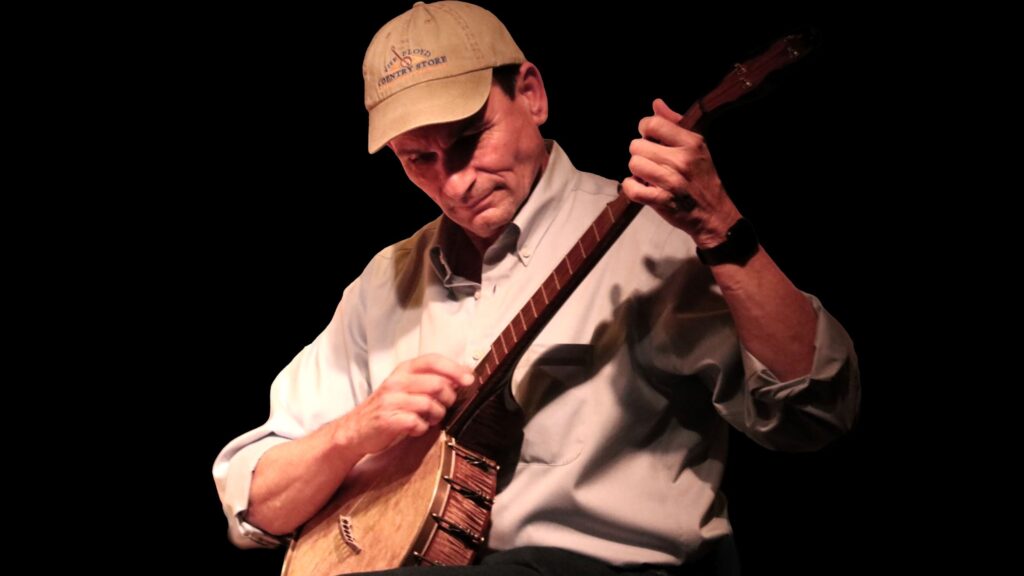
As a “first generation Italian immigrant”, he felt its bluegrass sound captured something of the essence of America, as it would have done to other metropolitan folk who grew up watching The Beverly Hillbillies (1960s American sitcom) on TV.
Within weeks of swapping the business world for the banjo, Keith was diagnosed with oesophageal cancer.
While obviously a shock, he admits it didn’t come wholly out of the blue.
“I knew there was something up with my health. I really did retire to pursue this passion I had but I’d recently lost some elderly relatives and there had been a lot of memory loss issues.
“I figured I was genetically disposed to that outcome and knew that it was important to keep mentally active by learning a language or something like that.
“I thought now was as good a time as any to pursue the music thing.”
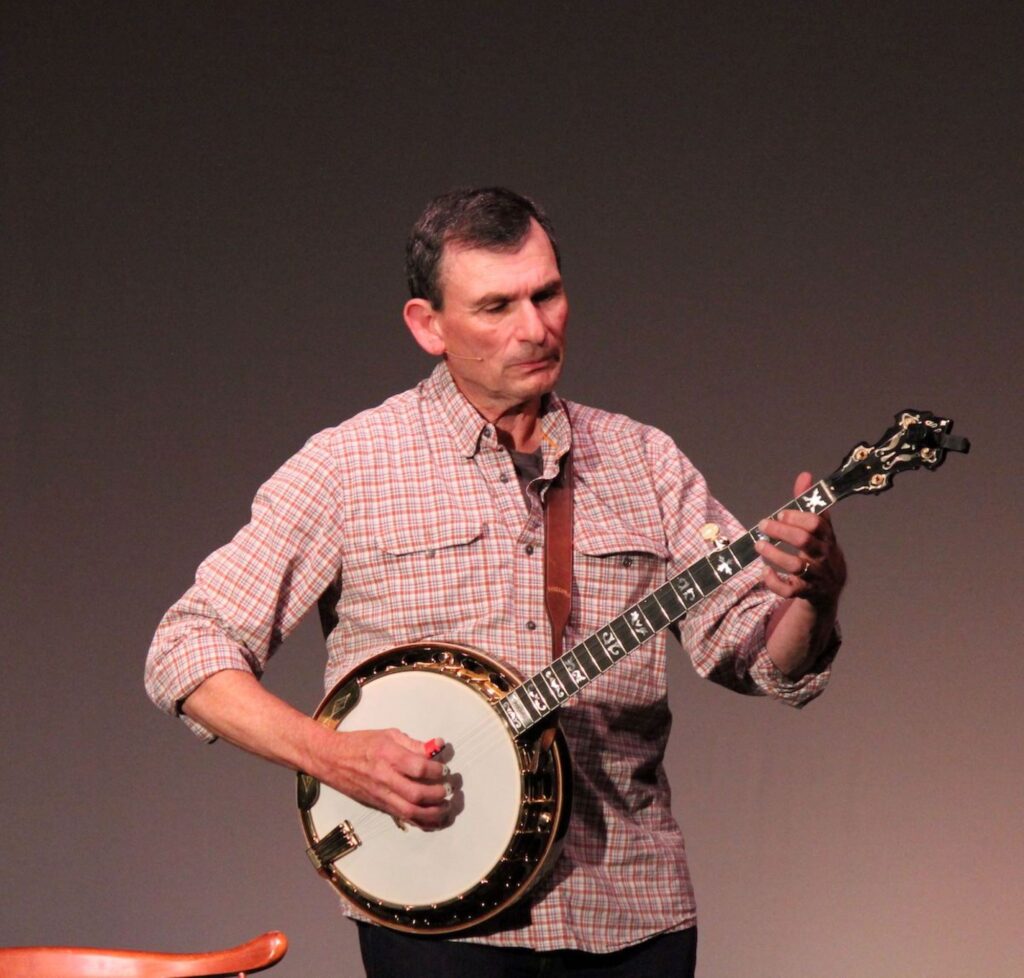
But with the cancer bombshell came the gloomy prognosis of a 50% chance of surviving for a further year and a 14% chance of an extra four.
“I’ve just come past the eight year mark,” says Keith, guessing he must be one of the lucky ones. “I’ll be 70 this year.”
Those bonus years have been extraordinary for Keith. Having told his story engagingly in private, he was urged to take it on the road and has done so with gusto, winning rave reviews and awards (no Grammy as yet) but perhaps more importantly the appreciative applause of audiences.
“We always do a talk-in after the show and usually about half the audience will hang around to ask questions or tell their own stories.
“I’m not doing this to draw attention to myself but I think we all have a responsibility to pay forward and there’s always a ripple effect to what you do. If you have something good to say, it can have an impact that you don’t even get to see.”
But what of the tomatoes in that eccentrically long-winded title?
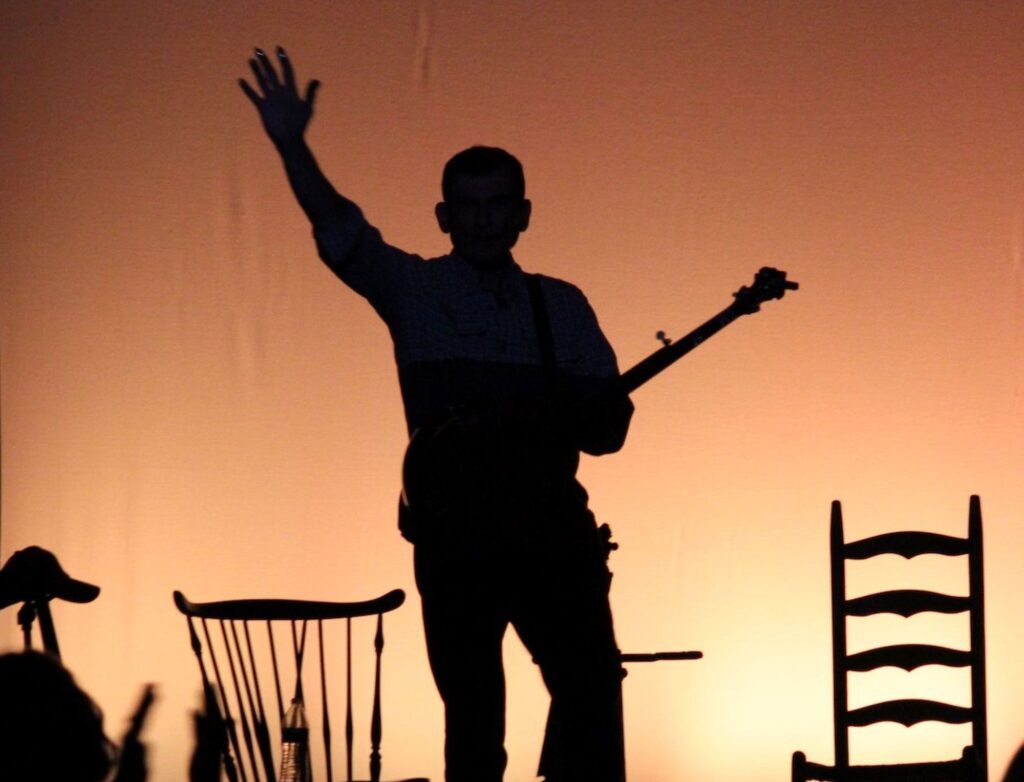
Keith says they’re partly metaphorical, like the banjos, but in that Italian household ruled over by an abusive father, tomatoes were served frequently and they induced in him the acid reflux that predisposed him to the cancer diagnosis.
Clearly the appeal of the show lies as much in the message of positivity it projects – don’t hang about if you’ve a passion to pursue – as in its autobiographical content.
In Canada, says Keith, people regularly give him hugs post-performance. In the UK the audience response is “more reserved – not as boisterous” but equally appreciative. And wherever he goes, the people keep coming.
He is returning to the Edinburgh Fringe. And to Wales. And also to the North East and Cumbria where producer and promoter Carole Wears, who knows a good thing when she sees it, has organised a ‘micro-tour’ to follow last year’s successful debut.
We all have a responsibility to pay forward and there’s always a ripple effect to what you do. If you have something good to say, it can have an impact that you don’t even get to see.
Keith Alessi
And from Keith’s point of view, every performance is an altruistic expression of gratitude and joie de vivre with the proceeds (nudging £800,000 so far) going to cancer and other charities while also helping to sustain venues still struggling post-Covid.
Corporate man has morphed into banjo-powered man on a mission to spread a little good with profit not the primary motive.
You can catch Tomatoes Tried to Kill Me But Banjos Saved My Life, directed by Erika Conway and billed as “an inspirational true story”, at Staveley Roundhouse (Friday, July 26, 7.30pm), Wark Town Hall (Saturday, July 27, 7pm) and Gosforth Civic Theatre (Sunday, July 28, 3pm). A performance at Cullercoats Watch House on July 29 is sold out.
For full details go to the website of CaroleW Productions.
